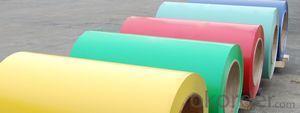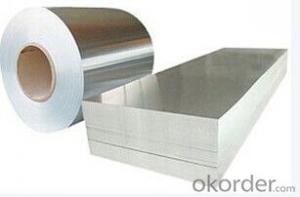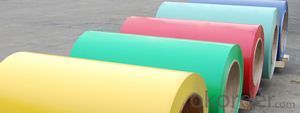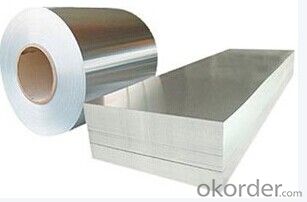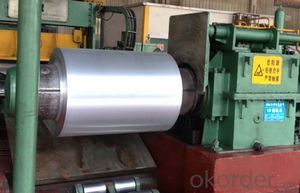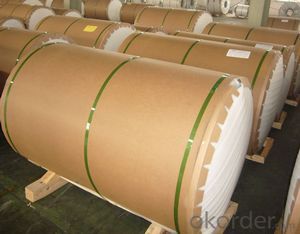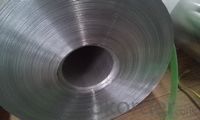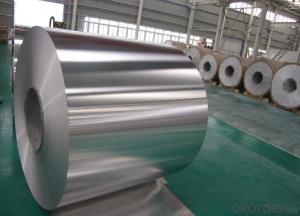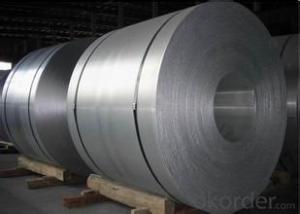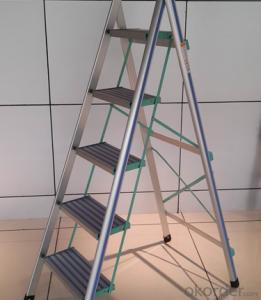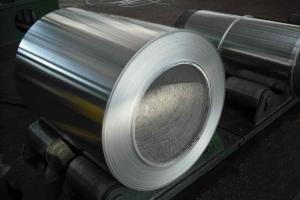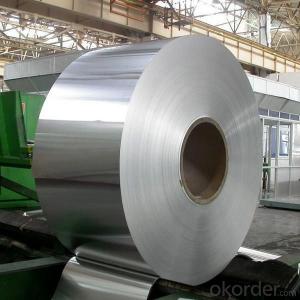AA 1070 aluminium coil
- Loading Port:
- China Main Port
- Payment Terms:
- TT OR LC
- Min Order Qty:
- -
- Supply Capability:
- -
OKorder Service Pledge
Quality Product, Order Online Tracking, Timely Delivery
OKorder Financial Service
Credit Rating, Credit Services, Credit Purchasing
You Might Also Like
supply Mill-finished / coated aluminum plate/sheet/ coil:
Alloy: AA1050,1060,1100,1200,2024,3003,3304,3005,3015,5052,5086,5754,5083,6061,7050,7475,8011, etc
Temper: O, H14/16/18/22/24/32/ H112/H321/T6,T851,T7451,T7351, etc
Thickness: 0.02mm—20mm
Width: 100mm—2000mm (Can be slitted)
Notice: PE coating / PVDF coating / Embossment can be done if required.
- Q: How are aluminum coils used in the production of sporting goods?
- Aluminum coils play a vital role in the production of sporting goods due to their lightweight, durable, and corrosion-resistant properties. These coils are primarily used in the manufacturing of sporting equipment such as baseball bats, tennis rackets, golf clubs, and bicycle frames. One of the key advantages of aluminum coils is their lightweight nature, which allows for enhanced maneuverability and improved performance. For instance, in the production of baseball bats, aluminum coils are used to create hollowed-out barrels that provide players with a better swing speed and increased power. Similarly, in tennis rackets and golf clubs, aluminum coils are utilized to construct the shaft, offering players greater control and maneuverability during gameplay. The durability of aluminum coils ensures that the sporting goods can withstand the rigors of intense physical activities. Whether it is the impact of a baseball hitting a bat or the force exerted on a bicycle frame during a rough ride, aluminum coils provide the necessary strength and resilience to withstand such pressures. This durability factor is crucial in ensuring the longevity of the sporting goods, reducing the need for frequent repairs or replacements. Furthermore, the corrosion-resistant properties of aluminum make it an ideal material for sporting equipment that may be exposed to various weather conditions or moisture. Aluminum coils are resistant to rust, ensuring that the sporting goods can maintain their performance and appearance over time. This quality is particularly beneficial in outdoor sports like golf or cycling, where exposure to rain, humidity, or perspiration is common. In summary, aluminum coils are extensively used in the production of sporting goods due to their lightweight, durable, and corrosion-resistant properties. These coils contribute to the overall performance, strength, and longevity of sporting equipment, enhancing the experience of athletes and enthusiasts alike.
- Q: Can aluminum coils be used in the manufacturing of automotive wheels?
- Yes, aluminum coils can be used in the manufacturing of automotive wheels. Aluminum is a lightweight and durable material that is commonly used in the production of wheels due to its high strength-to-weight ratio and corrosion resistance. It allows for better fuel efficiency and improved vehicle performance.
- Q: Can aluminum coils be used for sound insulation purposes?
- Yes, aluminum coils can be used for sound insulation purposes. Aluminum has excellent sound-dampening properties due to its density and ability to absorb and attenuate sound waves. Aluminum coils can be used in various applications such as in HVAC systems, automotive industry, and construction to reduce noise transmission. The coils can be installed in walls, ceilings, or ductwork to create a barrier that blocks or absorbs sound vibrations, thus improving sound insulation and reducing noise levels. Additionally, aluminum coils are lightweight, durable, and resistant to corrosion, making them a reliable choice for sound insulation solutions.
- Q: What are the thickness tolerances for aluminum coils?
- The specific grade and alloy of aluminum being utilized can cause variations in the thickness tolerances of aluminum coils. Typically, the range for tolerances in coil thickness is between +/- 0.003 and 0.015 inches (0.076 to 0.381 mm). Nevertheless, it is crucial to acknowledge that various industries and applications might possess their own distinct requirements and tolerances. To ascertain the precise thickness tolerances necessary for a particular application, it is advisable to refer to the appropriate industry standards or specifications.
- Q: Are there any limitations on the width-to-thickness ratio of aluminum coils?
- Yes, there are limitations on the width-to-thickness ratio of aluminum coils. The specific limitations depend on various factors such as the intended application, manufacturing process, and the mechanical properties of the aluminum alloy being used. Generally, a higher width-to-thickness ratio can result in increased material instability, difficulty in handling, and potential quality issues. Therefore, it is necessary to carefully consider these factors and consult industry standards and guidelines to determine the appropriate width-to-thickness ratio for aluminum coils.
- Q: Can aluminum coils be used for pharmaceutical packaging?
- Certainly, pharmaceutical packaging can make use of aluminum coils. Aluminum is widely preferred for such purposes owing to its numerous advantageous properties. Notably, its lightweight nature, resistance to corrosion, and exceptional barrier properties render it exceptionally suitable for safeguarding pharmaceutical items against external elements like moisture, oxygen, and light. Moreover, aluminum coils can be conveniently fashioned into various shapes and sizes, thereby offering flexibility to meet diverse packaging requirements. It is also worth mentioning that aluminum is both non-toxic and non-reactive, thereby guaranteeing the safety and overall quality of pharmaceutical products.
- Q: What is the typical elongation of aluminum coils?
- The typical elongation of aluminum coils can vary depending on the specific alloy and manufacturing process, but it generally ranges from 5% to 30%.
- Q: What are the different coil winding options for aluminum coils?
- There are several coil winding options for aluminum coils, including random winding, layer winding, and helical winding. Random winding involves winding the aluminum wire in a haphazard manner, while layer winding involves winding the wire in a neat, concentric manner. Helical winding, on the other hand, involves winding the wire in a spiral or helix pattern. Each winding option has its own advantages and is chosen based on specific requirements and applications.
- Q: What specific conditions or criteria must be met when utilizing aluminum coils?
- <p>There are several special requirements for using aluminum coils. They should be stored in a dry and clean environment to prevent corrosion. The coils must be handled carefully to avoid scratches or dents that could affect their performance. When used in manufacturing, the specific alloy type and temper of the aluminum coil must be considered as they influence properties like strength and malleability. Additionally, the thickness and width of the coil should match the requirements of the application to ensure proper fit and functionality. Adherence to safety standards during the handling and processing of aluminum coils is also crucial to prevent accidents and ensure quality control.</p>
- Q: What is the maximum coil width available?
- The maximum available coil width is contingent upon various factors, including the manufacturing capabilities of the supplier or manufacturer in question. In broad terms, coil widths can span from a few millimeters to several meters. The utmost width is typically dictated by the machinery employed in coil production and the constraints imposed by the size of the raw materials being handled. It is advisable to engage in consultation with specific suppliers or manufacturers to ascertain the maximum coil width feasible for a given product or application.
Send your message to us
AA 1070 aluminium coil
- Loading Port:
- China Main Port
- Payment Terms:
- TT OR LC
- Min Order Qty:
- -
- Supply Capability:
- -
OKorder Service Pledge
Quality Product, Order Online Tracking, Timely Delivery
OKorder Financial Service
Credit Rating, Credit Services, Credit Purchasing
Similar products
Hot products
Hot Searches
Related keywords
